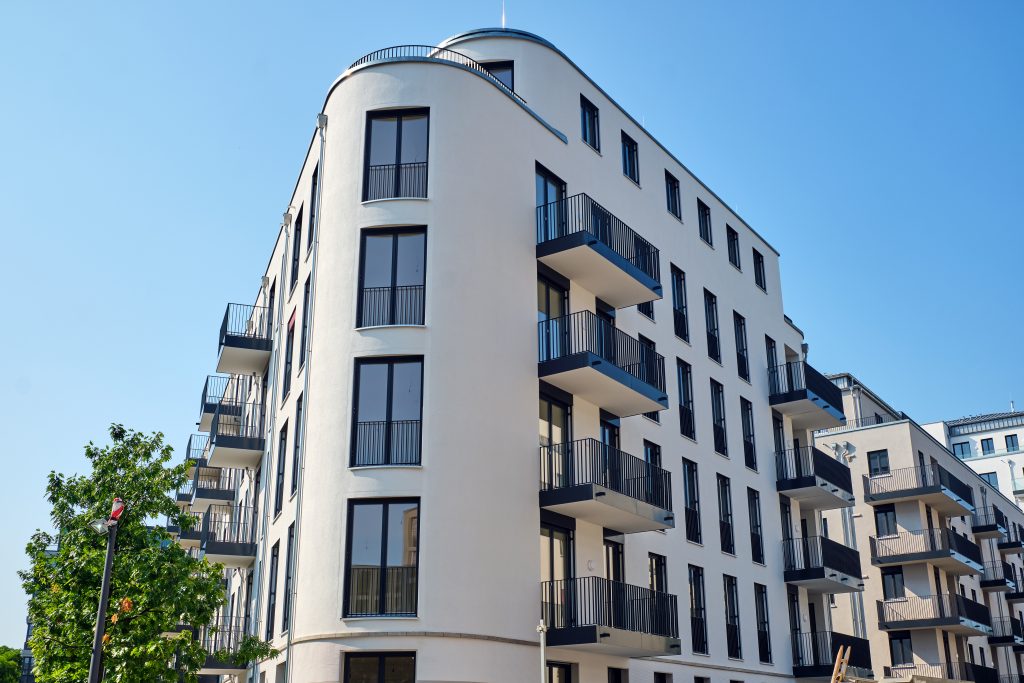A new law on leasehold reform was announced in the King’s Speech with the potential to affect millions in the UK. Leaseholds have come under intense scrutiny in recent times, with leasehold properties often subject to punishing fees related to extending their leases, service charges, ground rent or purchasing a freehold.
Leaseholds differ from freeholds because while owning a freehold means that you own both the property and the land it occupies outright, a leasehold essentially means that you only own the property for a specified period of time. Once this lease expires, the property returns to the freeholder. The cost of extending a leasehold is often highly expensive, however extending a property is usually necessary as properties lose a significant amount of value once they go below 80 years.
Those who are hoping for the eradication of the leasehold system will be disappointed, as the leasehold system is likely to be revised rather than abolished. The Leasehold and Freehold Reform Bill is set to ban leaseholds for new houses, but not flats, meaning that the vast majority of leaseholds will not be covered. According to the most recent data, an estimated 4.98m properties are classed as leasehold dwellings in England, equivalent to 20% of English housing stock. 70% of these nearly 5 million properties are flats.
The Levelling Up, Housing and Communities Secretary, Michael Gove, has previously described the leasehold system as unfair and outdated. However, does this mean that the government will abolish the system entirely through the Leasehold and Freehold Reform Bill? Keep reading to find out.
Ban on new leasehold houses
As mentioned, the government has said that it will ban leaseholds for new houses. This represents roughly 30% of leasehold properties. However, it is worth noting that the proportion of new-build houses which are sold as leaseholds fell from a 15% high in 2016 to a tiny proportion of just 1% by December 2022. It is important to point out that this reform will only be for new houses. As a small number of houses are sold as leasehold now anyway, this is hardly the seismic reform many have been hoping for.
But what about those who already live in leasehold houses? This could make it very difficult for them to sell these increasingly rare and undesirable properties. Furthermore, there was no announcement on banning leasehold flats, which make up the majority of leaseholds (around 70%).
Freehold purchase
The ease of purchasing the freehold of a property will also be made easier by the prospective reform. Currently, if a group of leaseholders wish to purchase the freehold of the building, they are prevented from doing so if 25 per cent of the building is commercial. With the proposed reform, this will be extended to 50 per cent. This will make it much easier for those living in buildings with a commercial presence to purchase the freehold.
Another important announcement is that leaseholders will no longer have to wait two years before being able to extend their lease or purchase the freehold. At the moment, this acts as a significant restriction for properties which have close to 80 years left on the lease.
Ground rent
The government has already made extensive reform to ground rent, which we covered in a previous article. You can learn more about the Leasehold Reform (Ground Rent) Act in our article here. While this legislation prevented ground rent from being charged for most new leases, this is not currently the case for existing leases.
This means that if someone was to buy a new flat with a new lease, it won’t have ground rent, or if you extend your lease, it either won’t have ground rent or the ground rent won’t increase. While the government has not included an abolition of ground rent in the Leasehold and Freehold Reform Bill, as of January 2024 it is currently consulting on capping ground rent for existing leaseholders.
Standard lease extension length
Further measures include changes to the standard contract length extension of a lease. This currently stands at 90 years for flats and 50 years for houses as per the Leasehold Reform Housing and Urban Development Act 1993. This can cause problems for those trying to sell their leasehold property unless they pay to extend the lease by a further 90 years. In good news for leaseholders, the government have pledged to increase the standard contract lease extension to 990 years, which would give leaseholders security without having to worry about extending their lease.
In reality, it may be easier for leaseholders to purchase the freehold of their property rather than choosing to extend the lease by 990 years in many cases.
Marriage value
The legislation would also reportedly remove marriage value. In plain words, marriage value is the amount of money a leaseholder has to pay the freeholder when they require their lease to be extended if its term is less than 80 years. The landlord’s argument is that when the lease is extended, the value of their freehold will be reduced (as it will be subject to a longer lease) and that their ground rent will be reduced as well.
On the other hand, the leasehold’s value is increased, therefore the leaseholder needs to pay the landlord compensation. In practice, many leaseholders feel that such compensation tends to be very high and unreasonable. If the marriage value is removed, it would help to make it much cheaper to extend a lease.
Right to manage
Finally, another touted reform is extending leaseholders right to manage. This was originally introduced by the Commonhold and Leasehold Reform Act 2002. Right to Manage (RTM) enables some leasehold property owners to take over the management of the building without the landlord’s agreement. They must also meet certain requirements to do so. The Leasehold Knowledge Partnership has found that residents who take over the running of their property save an average cost of 20%. As well as taking control of the communal areas of their building, the right to hire and fire property managers will also reportedly be extended.
Our thoughts
This reform will be welcome news for many who either own a leasehold or are thinking of buying a leasehold property. Nevertheless, many would argue that it does not go far enough by excluding flats from much of the new legislation.
It is also worth pointing out that there is now only a relatively short window of time for the legislation to complete its passage through parliament. The last UK general election was held on 17th December 2019, meaning that parliament must be dissolved by 17th December 2024.
If the legislation is introduced to parliament by the end of 2023, this only gives roughly a year for it to complete its passage through parliament. Due to the complicated nature of the property industry, this may seem optimistic. The first Leasehold Reform Bill took over a year to go through, and this only related to new leases, which are much simpler than existing leases. It is also not clear what form the bill will take by the time it has made its way through parliament due to the amendments which are often made to such bills.
Even if the Conservatives were to lose the next general election, it seems likely that there would still be further reform regardless of the party in charge. Labour have responded to the news about the government’s leasehold reform plans by saying that Labour would “fundamentally and comprehensively reform the leasehold system”. This would include a system to replace private leasehold flats with commonhold among other measures.
Have questions? Get in touch today!
Call us on 020 7928 0276, phone calls are operating as usual and will be taking calls from 9:30am to 6:00pm.
Email us on info@lisaslaw.co.uk.
Use the Ask Lisa function on our website. Simply enter your details and leave a message, we will get right back to you: https://lisaslaw.co.uk/ask-question/
For more updates, follow us on our social media platforms! You can find them all on our Linktree right here.







Thank you for your sharing. I am worried that I lack creative ideas. It is your article that makes me full of hope. Thank you. But, I have a question, can you help me?
acheter médicaments en Suisse Seacross Ingeniero Pablo Nogués Erfahrungen mit Medikamente bestellen